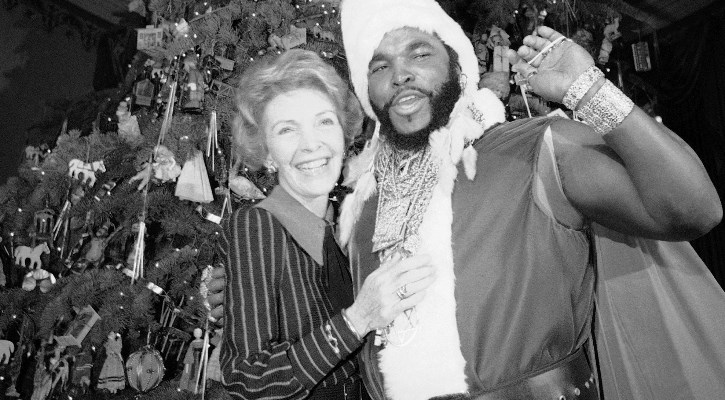
Elon Musk, Time magazine’s person of the year, has a personality cult like no other current business leader.
With his 66 million Twitter followers, his power to move stock and crypto prices with a hasty tweet is a delight to believers and a headache for regulators. But he recently told the Wall Street Journal that “CEO is a made-up title, CFO is a made-up title…they don’t mean anything”. Is he right though?
A leader can be the difference between investors getting rich (or poor). An unexpected departure is often a red flag to investors and triggers share price volatility, but the evidence for long-term impacts of the revolving corporate door is hazy. In this article, we round up the latest key people moves, detailing who’s left in 2021 and who’s leaving in 2022.
Mr Musk’s career is beyond the scope of this article, but, for the record, Morningstar’s Seth Goldstein says that Musk overall is an asset to Tesla and one of the reasons some investors are so positive about the stock:
“If Tesla is unable to retain key employees, such as CEO Elon Musk, its favorable brand image could decline," he says.
Investors who bought Tesla in 2016 will agree, as they are sitting on a 2,200% share price gain. Still, our analysts flag up concerns over Musk’s stake in Tesla from a governance perspective, which is one of the key pillars of ESG investing.
Some CEO departures, however, spark relief among investors. When Twitter founder Jack Dorsey announced his departure in 2022, shares surged because investors thought Dorsey had overstretched himself by trying to run digital payments firm Square (SQ) as well as the social media platform.
A Not Very British Phenomenon
While the UK has a wealth of managerial talent running listed companies, we don’t really do the idea of the chief executive as visionary or financial shamen. You could even argue British investors value a “safe pair of hands” over one with an overabundance of charisma and slick communication skills.
Great leaders can make companies successful, and investors rich, and the flipside is also painfully true. Still, despite lower expectations, many UK chief executives have proved to have feet of clay and the job security of a football manager. That is particularly impressive given the activist investors looking to dethrone even long-established bosses.
Ultimately, without someone to set up a company, take all of the financial risks, raise money and put in the anti-social hours, investors wouldn’t have stocks to put their money into. But then sometimes the founder or CEO becomes the problem. That can particularly be the case after an IPO (the Hut Group’s issues are discussed in detail here).
"With Immediate Effect"
Not all resignations are equal, however, and every year investors see the full range of departures, from sudden sackings to carefully planned successions.
Sadly, journalists are not party to boardroom conversations, so we often don’t know what has really gone on. A company, however is obliged to update the market with executive changes and is free to spin the changes how it wishes.
The phrase “with immediate effect”, which was used when Jes Staley left Barclays (BARC) last month, tends to jar the most with shareholders and trigger the biggest price moves, usually downwards.
Online fashion retailer Asos (ASC) issued a profit warning on the same day as it announced the immediate exit of its chief executive and shares promptly plunged. From an investor’s perspective, all people moves should be orderly, but corporate life is rarely that neat. What are the good examples of succession planning?
Supermarket Sweep
British supermarkets have tended to do this well: Tesco’s (TSCO) Sir Terry Leahy, who turned the company into a juggernaut, announced his resignation in June 2010 but retired from the role in March 2011.
Sainsbury’s (SBRY) Justin King also gave investors six months’ notice of his departure in 2014, after a successful 10 years at the helm. Both retail magnates left rather big shoes to fill for their successors, which is another problem for investors: do they sell when a influential leader leaves, and to what extent is "key person risk" at play?
Both companies’ share prices are lower than when their leaders left, but correlations like these don’t take into account events like Brexit and the coronavirus pandemic. In the US, Apple’s (AAPL) Tim Cook stepped in just ahead of Steve Jobs’ death, and some analysts thought he could not replicate the Apple founder’s success.
If investors had sold then, they would have made a terrible mistake, as the share price has soared in 10 years and the company is on the verge of becoming the most valuable in the world. Orderly FTSE 100 handovers are under way at Burberry (BRBY), Anglo American (AAL), Johnson Matthey (JMAT) and Taylor Wimpey (TW) (see table).
Long- and Short-Term Trends
Using detailed data from AJ Bell, we last looked this issue in 2019, where we found that in the short term share prices tend to overreact, particularly to negative and unexpected news, but longer-term, the “chief executive effect” tends to fade.
CEO turnover in the FTSE 100 was much lower this year than in 2020, with eight bosses leaving--and four already announced for 2022. The vast range of share price moves for 2021’s changeover companies suggests an element of randomness. In rising markets, it's hard to see any patterns.
The evidence for long-term investing in long-term chief executives is pretty clear though – the three FTSE 100 CEOs with more than 20 years at the top, at Next (NXT), Dechra (DPH) and Ocado (OCDO), have presided over some amazing share price gains (although Ocado was not listed for the full period).
What’s clear from the recent departures at Rio Tinto (RIO) and Barclays is that reputational risk is intensifying.
Whether a board takes swift action--or is forced to by external stakeholders like fund managers or regulators--the buck always stops at the top eventually. Handily for companies, this allows them to clean the slate and start again.
In some rare cases, the departure of a key executive is a sign of a sinking ship. When Wirecard’s former chief operating officer, Jan Marsalek, was fired in 2020, he became a fugitive (and one of the world’s most wanted men) within hours. He's still on the run.



























